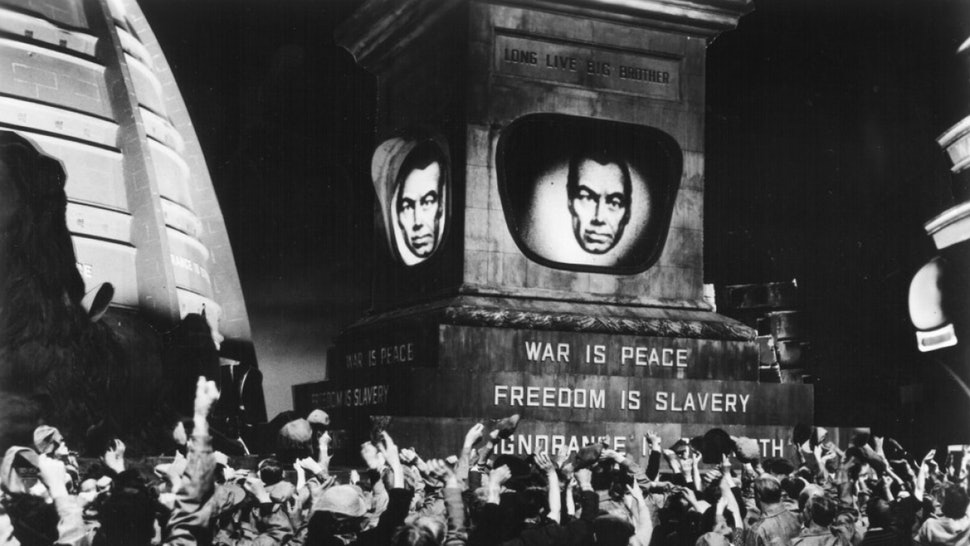
Originally titled Nineteen Eighty-Four, the novel now goes by its more popularized title, 1984. For those who were not assigned this book to read in school:
Among the seminal texts of the 20th century, Nineteen Eighty-Four is a rare work that grows more haunting as its futuristic purgatory becomes more real. Published in 1949, the book offers political satirist George Orwell’s nightmarish vision of a totalitarian, bureaucratic world and one poor stiff’s attempt to find individuality. The brilliance of the novel is Orwell’s prescience of modern life—the ubiquity of television, the distortion of the language—and his ability to construct such a thorough version of hell. Required reading for students since it was published, it ranks among the most terrifying novels ever written. [Goodreads]
In the novel, Great Britain (called “Airstrip One”) has become a province of a superstate named Oceania, which is ruled by “the Party,” who employ Thought Police to persecute independent thinking. The Party’s leader is Big Brother, who may not even exist. The protagonist of the novel, Winston Smith, is a Party member. Although Smith is an outwardly diligent and skillful worker, he secretly hates the Party and dreams of rebellion against Big Brother.

Since its publication, 1984 has won numerous awards, been translated into at least 65 different languages, and has been listed as one of the most important historical novels in history by such organizations as Time magazine, Modern Library, and the BBC.
Have you read 1984? What was its impact on you?








